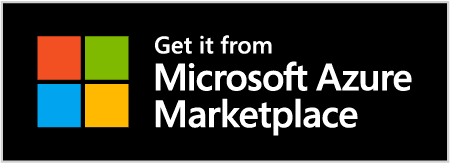E-Com
Coupang
South Korea’s Coupang confirmed a data breach that exposed the names, email addr...
South Korean e-commerce giant **Coupang** has confirmed a massive data breach that exposed the personal information of about **33.7 million customer accounts**, in what officials are calling **South Korea’s worst data leak in more than a decade**.
The incident, disclosed publicly on **December 1, 2025**, involves a **five-month intrusion window** that remained undetected until mid-November and has triggered criminal investigations, regulatory scrutiny, political backlash and a sharp hit to Coupang’s market value.
## Breach at a Glance: 5-Month Window, 33.7M Accounts, Overseas Servers
Coupang first spotted something was wrong on **November 18**, when it detected unauthorised access affecting about **4,500 user accounts**. A deeper forensic review then revealed that the attacker had, in fact, accessed data tied to roughly **33.7 million customers in South Korea**.
Key timeline details:
* **Initial unauthorized access:** believed to have begun on **June 24, 2025**
* **Infrastructure:** attack traffic routed via **overseas servers**, complicating attribution
* **Discovery date:** **November 18, 2025**, after anomalous account activity
* **Public disclosure:** weekend of **November 30 – December 1, 2025**
The breach window of nearly **five months** is central to both regulatory and political criticism, with President **Lee Jae-myung** calling it “astonishing” that the company failed to recognise the breach for so long.
## What Was Exposed
Coupang has confirmed that the attacker accessed a large corpus of customer identity and contact data:
* **Full names**
* **Email addresses**
* **Mobile / phone numbers**
* **Shipping and home addresses**
* **Portions of order history** (items ordered, related metadata)
Equally important is what Coupang says **was not** compromised:
* Payment card numbers
* Other payment information
* Login credentials and account passwords
The company maintains that **financial data and authentication passwords remain secure**.
However, from a security risk perspective, this still represents a **high-value identity dataset**. Combined names, phone numbers, addresses and order patterns are extremely useful for:
* Highly personalized **phishing campaigns** that reference real purchases
* **Smishing** (SMS phishing) that impersonates delivery or refund workflows
* Social engineering for **account takeover** on other platforms
* Targeted **fraud and scam operations** using detailed personal profiles
For context, the number of impacted accounts (≈33.7M) exceeds Coupang’s reported **24.7 million active users**, which means dormant or less active accounts were also caught in the exposure.
## How the Attack Worked
While full technical details are still emerging, early statements by officials and Coupang executives outline a clear, high-risk pattern:
* Investigators believe the attacker used a **stolen private encryption key** to authenticate into Coupang’s systems.
* The prime suspect is reportedly a **former Chinese Coupang engineer** who allegedly retained or misused access post-employment.
From a security architecture perspective, this suggests several breakdowns:
1. **Key Management & Protection**
* A private encryption key used for authentication should be tightly controlled, rotated and stored in hardened key-management systems (HSMs or equivalent).
* Successful abuse of such a key indicates either inadequate **key custody** or poor **rotation and revocation** practices after staff departures.
2. **Offboarding & Privileged Identity Management (PIM)**
* The involvement of a former employee points to **gaps in access revocation** and privileged identity deprovisioning.
* Mature organizations enforce **zero-standing privilege**, strict offboarding checklists and real-time revocation of all keys and tokens.
3. **Network & Data Segmentation**
* The ability to pull data at the scale of tens of millions of accounts suggests insufficient **segmentation between customer PI data stores and broader infrastructure**, allowing wide data access once initial credentials were validated.
4. **Behavioral & Anomaly Detection**
* A five-month detection lag indicates that **user and entity behavior analytics (UEBA)** and **access pattern anomaly detection** were either absent or ineffective.
* Access from overseas servers over a long period, combined with large-volume data queries, should normally trigger alerts in a mature SOC.
Put simply: this appears to be a classic **insider-enabled breach** amplified by **weak key and identity governance** and **late-stage detection**.
## Coupang’s Response: Containment, External Forensics and Public Apology
Once the incident was detected, Coupang says it took several immediate actions:
* **Blocked the unauthorized access route** used via overseas servers
* **Strengthened internal monitoring** of access and data flows
* **Retained an independent security firm** to support forensics and remediation
* **Reported the incident** to key South Korean authorities, including:
* Korea Internet & Security Agency (**KISA**)
* Personal Information Protection Commission (**PIPC**)
* National Police Agency
CEO **Park Dae-jun** published a formal apology on Coupang’s website, expressing regret for the incident and pledging full cooperation with investigators and regulators.
Despite the apology, the company is facing questions not just about how the breach occurred, but why a platform of its scale lacked the telemetry and controls to contain it sooner.
## Regulatory and Political Fallout: Toward Trillion-Won Penalties
The breach has rapidly escalated into a **national policy issue**.
* President **Lee Jae-myung** has ordered **swift action to penalize those responsible**, calling for a review of **higher fines and punitive damages** for corporate data-protection failures.
* Current law allows penalties up to **3% of annual revenue**. For Coupang, that could mean potential fines exceeding **₩1 trillion** (about **USD 680 million**) in extreme scenarios.
* The administration has framed personal data as a **“key asset in the age of AI and digitalization”**, arguing that corporate negligence in this area can no longer be tolerated as a cost of doing business.
Regulators are examining whether Coupang violated South Korea’s **personal information protection rules**, particularly around:
* Timely detection and disclosure of breaches
* Adequate technical safeguards for large-scale PI datasets
* Secure handling of encryption keys and access tokens
* Offboarding and residual access controls for former employees
The combination of **record scale**, **extended exposure window** and **insider indications** makes this case a prime candidate for setting **new precedent** on penalties and compliance expectations in South Korea’s tech sector.
## Market Impact: Stock Slide, Litigation Risk and Trust Deficit
The market response has been swift:
* Coupang’s **New York–listed stock** dropped around **5–9%** following disclosure, erasing part of the gains it had accumulated earlier in 2025.
Beyond immediate price movement, the breach creates several medium-term risks:
1. **Class-Action Lawsuits**
* Reports indicate **10,000+ customers** are considering or preparing to join class-action efforts, often seeking at least **₩100,000 per person** in damages.
2. **Higher Cybersecurity and Compliance Spend**
* Coupang will likely be forced to increase investments in: significantly
* Identity & access management (IAM, PIM, PAM)
* Key management and HSM infrastructure
* SOC modernization and UEBA tooling
* This will pressure margins and may be closely scrutinized by investors during upcoming earnings cycles.
3. **Reputational Damage and Churn**
* Trust is central in e-commerce. A breach of this magnitude can:
* Increase account deletion and opt-out rates
* Reduce order frequency from security-conscious customers
* Strengthen competitors who position themselves as “more secure” alternatives
## Coupang’s History of Repeated Data Incidents
TechCrunch notes this latest breach arrives on top of **a string of prior incidents** involving Coupang’s systems.
Past issues include:
* Data leaks between **2020 and 2021** affecting customers and delivery drivers
* A **December 2023** incident in which its seller management system exposed the personal information of more than **22,000 customers**
This pattern reinforces a key concern for regulators and customers: Coupang’s **security maturity and governance frameworks** have not scaled at the same pace as its **explosive e-commerce growth** in South Korea, Japan, and Taiwan.
While Coupang says there is currently **no evidence that Coupang Taiwan or Rocket Now customer data** was affected by the current breach, the company’s multi-market footprint raises the stakes for **cross-border data governance and cloud security posture management**.
Any large consumer platform operating in or adjacent to South Korea will be expected to **prove** that lessons from this breach have been internalised.
## Where This Leaves Coupang — and the Region
Coupang is often called **“the Amazon of South Korea”**, and this incident demonstrates what happens when massive scale meets imperfect security governance.
In the short term, the company faces:
* Regulatory investigations
* Possible record fines
* Class-action lawsuits
* A reputational repair challenge that will take sustained transparency and investment
In the longer term, this breach is likely to become a **reference case** in Asian cybersecurity:
* For lawmakers: a catalyst for **tougher personal-data regulation**
* For enterprises: a benchmark for **what not to do** in key management and off-boarding
* For users: a reminder that **non-financial personal data still carries real-world risk**
If Coupang can demonstrate a credible end-to-end overhaul of its **identity, access and detection stack**, it may eventually turn this crisis into a security-maturity inflexion point. But for now, the incident stands as a stark warning: in modern e-commerce, scale without security is a systemic liability, not an advantage.






